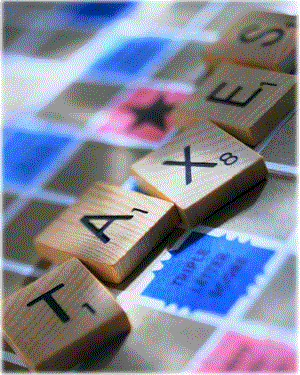The Daily Memphian wrote today: “Under state law, county government could take half of the revenue generated for its own purposes in a process that would probably involve another referendum on the matter in unincorporated Shelby County. That’s according to one of several legal opinions Shelby County Commissioners are reviewing.” Knowing the dependability of the report who wrote this sentence, we suspect it reflects the confusion of his legal sources on exactly how sales tax revenues are divided, because the sentence is not correct.
If the sales tax increase were countywide, education would receive half of the revenue generated, not county government (and the revenues for schools would be divided based on the number of students in each school district). County government does not get to use these revenues for its own purposes. They are earmarked for schools. In fact, the only sales tax revenues Shelby County would get is the half of the tax collected in the unincorporated area only.
That’s because the local option sales tax is a situs tax, which means that half of it goes to the local government where it is collected. Shelby County is considered the government over the unincorporated area. Put simply, the big winner if there’s referendum for voters in the unincorporated area would be schools, specifically Shelby County Schools, not Shelby County Government.
The following blog post was written in 2013 by veteran journalist and school funding expert Jimmie Covington. Clearly, his prediction was absolutely right:
If Memphis city officials are successful in getting a half-cent local sales tax increase approved by city voters on Nov. 21, the projected $47 million in new revenue from the tax could be cut in half for the next fiscal year that starts on July 1, 2014.
Backers of the tax increase have said that an estimated $30 million would go to a trust fund for a new pre-kindergarten program with the remainder of the $47 million going to reduce the city property tax rate.
Backers of the tax hike on the City Council and in other groups in the city have made no mention of the fact that if city voters approve the increase, it seems likely that the County Commission will try again to convert the half-cent increase in Memphis and suburban municipalities to a countywide increase.
If that situation occurs, voters in the county’s unincorporated area would, according to state law, be the only ones participating in the county referendum.
Some would say surely those voters would reject extending the increase to the area where they live.
Maybe so.
But just think about this: How many large grocery stores or other major retail outlets are located in unincorporated Shelby County. It seems a good bet that a majority of unincorporated residents do much of their retail spending in Memphis or the county’s suburban municipalities.
If that is the case, they for the most part would already be paying the half-cent increase.
Making the increase countywide would cut Memphis city government’s revenue from the half-cent tax from $47 million to $23.5 million. The other $23.5 million plus half the revenue from the half-cent increase in the suburban municipalities would be shifted to countywide school funding.
At the time of the unsuccessful county referendum last year to make the increase countywide, officials estimated that a half-cent sales tax increase would provide $30 million in new revenue for schools. That referendum was held in Memphis and the unincorporated area.
Getting help with school funding is the incentive for the County Commission to move to shift the increase to countywide.
Would voters in unincorporated areas have any major qualms about voting for a measure that would cut in half the revenue counted on Memphis city officials and shift those funds to schools, including the schools that serve the unincorporated area?
The schools revenue from the countywide increase would be split on an average daily attendance basis among the Shelby County Schools and any municipal districts that are established.
Converting the half-cent increase in the suburban municipalities to a countywide increase would have different effects in the different communities.
If the increase is approved in Memphis and then later becomes countywide, would the City Council direct all the $23.5 million to the trust fund for the city’s pre-K program or would it divide the money between pre-K and a limited property tax cut?



